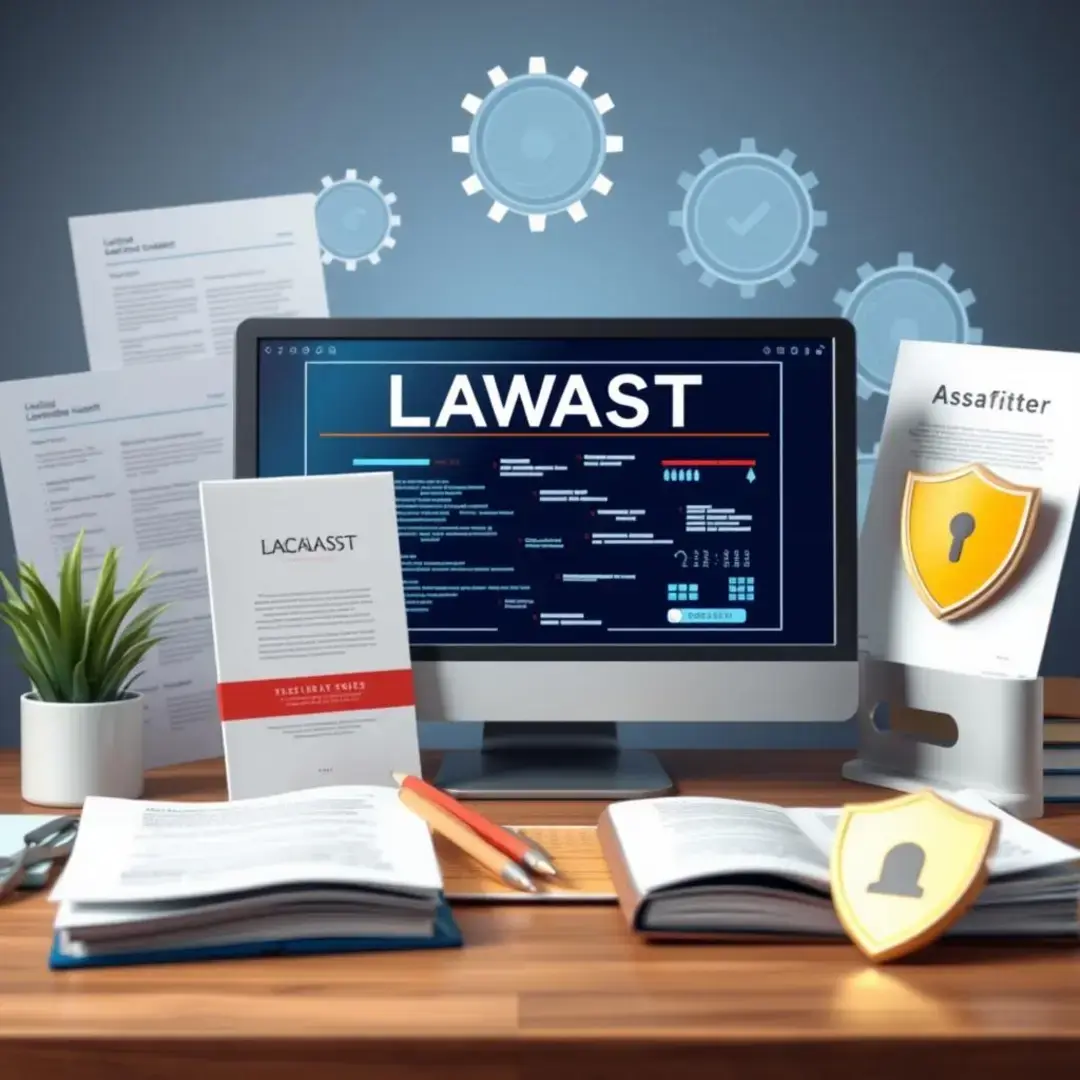How Copyrights Benefit Startups
Protecting Your Intellectual Property

Understanding Copyright Basics for Startups
Copyright is a fundamental aspect for startups aiming to protect their creative works. As a startup, knowing the ins and outs of copyright can foster a competitive edge, ensuring that your original content, including software, music, and text, is shielded from infringement. Copyright covers a wide array of expressive works, and understanding its nuances can make a noticeable difference in your business.
To qualify for copyright protection, a work must be original, fixed in a tangible medium, and exhibit a certain degree of creativity. This might include everything from your software code to branding graphics. Importantly, it’s not just finished products that deserve protection; drafts, preliminary designs, and even recorded ideas can also be protected under copyright law.
Registering your copyright may seem daunting, but the process can be straightforward. First, you need to complete an application form, pay the required fee, and submit your work to the relevant copyright office. A registered copyright not only reinforces your claim to your creations but also enhances your ability to enforce your rights should disputes arise.
Operating in a global market presents additional considerations. Copyright laws differ across borders, and it’s crucial to understand how these differences can affect your business strategy. International treaties, like the Berne Convention, provide some level of protection, but having a clear plan for your international copyright strategy can prevent potential conflicts and safeguard your interests.
Leveraging Copyright for Competitive Advantage
A robust copyright strategy not only protects your work but also helps to build and solidify your brand identity. When you own the copyrights on your logos, marketing materials, and product designs, you create distinctive assets that contribute to your brand recognition. This not only fosters customer loyalty but also differentiates you from competitors in the marketplace.
Having copyrights in place significantly reduces the risk of infringement, which can otherwise lead to costly legal battles. By proactively establishing and enforcing copyright protections, startups can maintain their market share and avoid the headache of defending against unauthorized use of their intellectual property. This proactive approach encourages innovation and fosters a healthy competitive environment.
With copyrights secured, startups may explore licensing opportunities that can create additional revenue streams. For instance, licensing your software or creative content to other businesses can open doors to significant financial gains. Not only does this strategy provide income, but it also enhances your brand visibility in the market.
Copyright and Funding

Attracting Investors with a Solid IP Portfolio
Investors are increasingly looking for startups with a strong intellectual property portfolio. Having registered copyrights demonstrates that a business not only values its creations but also safeguards them against potential risks. This proactive approach can significantly enhance your appeal to investors, who prefer ventures that minimize risk while maximizing potential returns.
A solid copyright portfolio demonstrates the value of your startup’s creative assets. It shows investors that you have taken the necessary steps to protect your work, thereby reducing risk. This can lead to more favorable funding terms, as potential backers will view your business as a lower risk investment.
During the due diligence process, copyrights can be a focal point of evaluation. Investors ascertain the uniqueness and legality of your offerings by scrutinizing your intellectual property rights. A clear and comprehensive copyright strategy can provide the documentation needed to inspire confidence in your venture.
Securing Loans and Grants
In some cases, startups might use their copyrights as collateral when seeking loans. By leveraging your intellectual property, you can access funds needed to fuel growth, research and development, or marketing efforts. Banks and financial institutions may view your protected assets as tangible assets that contribute to a more favorable loan assessment.
Many funding programs require businesses to demonstrate ownership of key intellectual properties, including copyrights. When applying for grants or investments, having your copyrights properly registered can enhance your eligibility. This can be particularly important for startups in creative industries, where intellectual property plays a pivotal role in business viability.
Managing and Enforcing Your Copyrights

Developing a Comprehensive Copyright Strategy
A comprehensive copyright strategy should be integral to your business plan. Startups can benefit from creating detailed internal policies that clarify how intellectual property is created, utilized, and protected within the organization. This proactive approach not only enhances awareness among team members but also establishes clear protocols to follow regarding copyright management.
Maintaining an internal copyright register is an effective way to track and manage your creative works. A centralized log of your copyrighted materials allows for quick reference and ensures all works are accounted for. This practice aids in the timely enforcement of your rights should an infringement occur.
Implementing strong internal policies will help safeguard your copyrights from the outset. This could involve conducting employee training on copyright awareness or developing guidelines on using third-party content. By fostering respect for copyrights within your team, you can reinforce the importance of intellectual property protection.
Responding to Copyright Infringement
If you suspect that your copyrights are being infringed upon, it’s vital to respond swiftly. Sending a cease and desist letter is often the first step in resolving such issues without escalation. This legal notice informs the infringer of your rights and requests them to cease the unauthorized use of your intellectual property.
In some cases, enforcement may lead to a negotiation process. Understanding the value of your work can facilitate settlements or licensing agreements with infringers. This not only resolves disputes but also opens potential avenues for collaboration and monetization of your creative assets.
Future-Proofing Your Startup with Copyright

Adapting to the Changing Digital Landscape
As technology evolves, so do the challenges associated with copyright. Startups must stay informed about digital rights management, especially in an era dominated by online content. Understanding how copyright applies to emerging platforms will be crucial for maximizing opportunities while protecting your creations.
With the rise of the metaverse, new copyright challenges are emerging. Startups involved in virtual reality and digital environments must be vigilant about how their works are represented in these spaces. This includes everything from virtual artwork to interactive experiences, requiring a keen understanding of copyright protections.
Another key future consideration involves AI-generated content. As AI technology advances, startups must navigate the complexities of copyright ownership for works created by algorithms. Determining how intellectual property is protected in an AI context will require innovative thinking and adaptation.
Staying Ahead of Copyright Trends
Legal landscapes are ever-changing, and it’s imperative for startups to stay updated on copyright laws. This proactive approach not only shields your business from potential legal pitfalls but also ensures that you are utilizing best practices for copyright management. Regular consultation with a legal expert can prove invaluable in this regard.
Finally, fostering a culture of copyright awareness within your startup can bolster your protective measures. Encouraging transparency and education around copyright issues ensures that all team members are aligned with your intellectual property goals. A well-informed team will be your first line of defense against infringement, protecting the creative output that is essential for your startup’s success.












